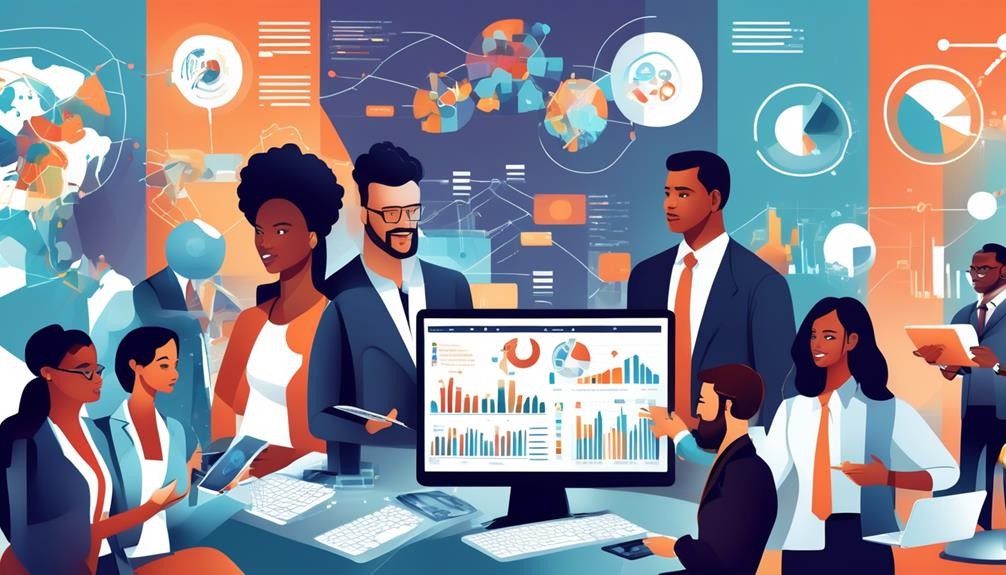Artificial Intelligence (AI) is playing a significant role in job automation and will continue to shape the future workforce. The integration of AI technologies has both benefits and challenges, impacting various aspects of employment.
AI is driving job automation and reshaping the future workforce. While it brings about challenges, it also presents new opportunities and demands the development of skills that are complementary to Artificial Intelligence technologies. Human-machine collaboration and responsible implementation of AI are key to maximizing the benefits and mitigating potential drawbacks, ensuring a positive impact on the future of work.
Impact of Artificial Intelligence on Job Automation
Artificial Intelligence (AI) has had a significant impact on job automation across various industries. While AI technologies offer numerous benefits and advancements, they also bring forth concerns about potential job displacement. Here are some key points regarding the impact of AI on job automation:
Economic Implications: The impact of Artificial Intelligence on job automation has economic implications. While automation can lead to increased productivity and cost savings for businesses, it can also result in job losses, potentially causing economic disruptions and income inequality. Governments and policymakers need to address these challenges by implementing strategies such as job transition programs, social safety nets, and policies that encourage the responsible use of Artificial Intelligence.
Automation of Repetitive and Routine Tasks: AI is adept at performing repetitive and routine tasks more efficiently and accurately than humans. This capability has led to the automation of jobs in industries such as manufacturing, logistics, data entry, and customer service. Tasks like data analysis, sorting, and processing, as well as assembly line work, can be handled by AI systems, reducing the need for human involvement.
Transformation of Job Roles: Artificial Intelligence has also led to the change of job roles. Some tasks within a job may be automated, allowing workers to focus on more complex and creative aspects of their work. For example, AI can automate data collection and analysis, freeing up professionals in fields such as marketing, finance, and research to concentrate on strategic decision-making and innovation.
Displacement of Certain Job Categories: AI-driven automation can potentially displace specific job categories altogether. Jobs that involve repetitive manual labor or are rule-based and predictable are more susceptible to automation. For instance, roles like cashiers, toll booth operators, and assembly line workers may be impacted. However, it is important to note that new job opportunities can also emerge as a result of AI advancements.
Creation of New Jobs: While some jobs may be displaced, AI has the potential to create new job opportunities. A team of skilled professionals is required to design, develop, and maintain AI systems. Such professionals include AI engineers, data scientists, machine learning experts, and ethicists who are knowledgeable about AI. Additionally, new roles may emerge in areas such as AI training, data labeling, and algorithm auditing, which are essential for ensuring fairness, transparency, and accountability in AI systems.
Skill Upgradation and Reskilling: As job roles evolve due to automation, individuals need to upskill and reskill themselves to remain relevant in the job market. Workers can focus on developing skills that complement AI technologies, such as problem-solving, critical thinking, creativity, and emotional intelligence, which are harder to automate. Governments, educational institutions, and organizations also play a crucial role in facilitating reskilling and lifelong learning initiatives.
It is worth noting that the impact of AI on job automation is complex and varies across industries and job roles. While some jobs may be at risk, AI also has the potential to enhance productivity, create new opportunities, and augment human capabilities. Therefore, it is crucial to approach AI implementation and job automation with a balanced perspective, considering the societal, ethical, and economic implications.
Impact of Artificial Intelligence on Future Workforce
Artificial Intelligence (AI) is expected to have a profound impact on the future workforce. While there are concerns about potential job displacement, Artificial Intelligence also presents opportunities for augmentation and collaboration between humans and machines. Here are some key points regarding the impact of Artificial Intelligence on the future workforce:
Job Transformation and Augmentation: AI technologies have the potential to transform job roles and augment human capabilities. Rather than replacing humans, AI can automate repetitive and mundane tasks, allowing workers to focus on more complex and creative aspects of their work. Artificial Intelligence can provide tools and insights to enhance decision-making, improve efficiency, and increase productivity in various industries.
New Job Opportunities: AI advancements can create new job opportunities that were previously nonexistent. As AI systems are developed, implemented, and maintained, there is a growing demand for skilled professionals in fields such as AI engineering, data science, machine learning, and robotics. Additionally, new roles may emerge in areas like Artificial Intelligence training, data labeling, algorithm auditing, and ethical Artificial Intelligence governance.
Skill Requirements and Reskilling: The rise of AI technologies will necessitate a shift in the skill sets required for the future workforce. Jobs will increasingly require skills such as problem-solving, critical thinking, creativity, emotional intelligence, and adaptability, which are less easily automated. It is crucial for individuals to engage in lifelong learning and continuously upskill and reskill themselves to remain relevant in the changing job market.
Collaboration between Humans and Machines: AI can enable collaboration between humans and machines, creating a symbiotic relationship. Humans possess unique qualities such as empathy, intuition, and ethical judgment, which are currently difficult for AI systems to replicate. By leveraging AI, workers can benefit from analytical power, data processing capabilities, and automation tools while contributing their human-centered skills to tasks that require social interactions, complex decision-making, and creative problem-solving.
Ethical Considerations and Human Oversight: As AI systems become more integrated into the workforce, ethical considerations become crucial. Humans need to ensure that AI is developed and used responsibly, avoiding biases, ensuring transparency, and maintaining accountability. Human oversight is essential to address the ethical implications of AI applications and to ensure that AI technologies are aligned with human values.
Economic and Societal Implications: The impact of Artificial Intelligence on future workforce will have broader economic and societal implications. While automation may lead to job displacements, it can also drive economic growth, increase productivity, and create new industries and job opportunities. Policymakers, organizations, and educational institutions need to anticipate and address the potential challenges associated with AI, such as income inequality, job transitions, and the need for social safety nets.
It is important to approach the integration of Artificial Intelligence into the future workforce with a balanced perspective. While there may be disruptions and changes in the job market, AI also offers the potential to enhance human capabilities, drive innovation, and improve overall productivity. By preparing for the evolving demands of the job market and embracing AI as a tool for augmentation, individuals and organizations can adapt to the changing landscape and harness the benefits of AI technologies. Artificial Intelligence app development involves creating applications that leverage AI technologies to provide advanced functionalities and intelligent capabilities.










